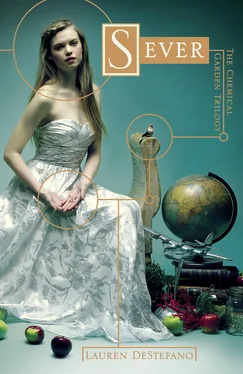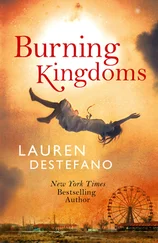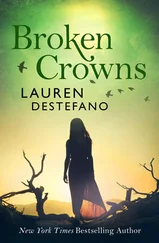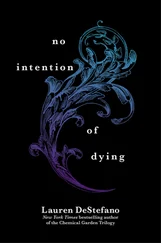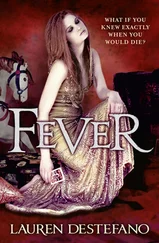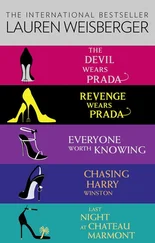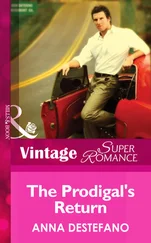“Your brother is ridiculous,” I agree.
“I’m going to call you Rose,” he says with resolution, picking up a screwdriver and working the back off an old clock.
“Please don’t,” I say. “I knew Rose. I was there when she died. I’d find it creepy.”
“Life is creepy,” Reed says. “Kids rotting from the inside out at age twenty is creepy.”
“Even so, my name is Rhine,” I say.
He nods for me to sit across the table from him, and I do, avoiding a gray puddle of something on the bench. “What kind of name is ‘Rhine,’ anyway?” he asks.
“It’s a river,” I say. I upturn a bolt and try to spin it like a top. My father used to make them for me and my brother. We’d spin them at the top of the stairs, and crush our shoulders together as we watched them jump down one step to the next. His always got there first, or else mine slipped through the banister and fell away. “Or it was a river, a long time ago. It ran from the Netherlands to Switzerland.”
“Then I’m sure it still does run there,” Reed says, watching the bolt spin away from my fingers and promptly collapse. “The world is still out there. They just want you to think it’s gone.”
Okay, maybe he is a little bit mad. But I don’t mind. Linden is right. Reed doesn’t ask many questions. He spends the rest of the morning keeping me busy with menial tasks, never telling me what it is I’m doing. As near as I can tell, I’m disassembling an old clock to make a new one. He checks on me sometimes, but spends most of the time outside, lying flat under an old car, or climbing inside to start its engine, which only splutters and creates black clouds through the tailpipe. He hides away in an even bigger shed farther back, higher than the house and more makeshift, as though he built it as an afterthought, to cover what’s inside.
But I don’t ask about that, either.
IT’S LIKE THAT for the rest of the day, and the next day, and the next. I don’t ask questions, and neither does Reed. He places tasks before me, and I do them. One piece at a time. Never knowing what I’m assembling. I watch him, too. He spends a lot of time under cars or in that lumbering shed with the door closed.
I never have much of an appetite, and the safest things to eat in his kitchen are the apples, anyway, being that they’re the only things I recognize. They’re not the ultrabright green and red fruit I got used to in the mansion. They’re speckled, flawed, and mealy, the way I grew up thinking they should be. I’m still not sure which way is more natural.
On my fourth morning, when I climb out of bed, I notice that the dizziness and the flecks of light are gone. The pain in my thigh has dulled, and the stitches have started to disintegrate. “I think I’ll leave tomorrow,” I tell Reed while we’re sitting on opposite sides of his worktable. “I’m feeling much better.”
He’s taking a magnifying glass to some heap of machinery—a motor, I think. “Did my nephew arrange for transportation?” he asks.
“No,” I say, tracing my finger around the rim of a mason jar filled with screws and grime. “That wasn’t part of the agreement.”
“So there was an agreement,” Reed says. “Doesn’t seem like it. Seems like you’re just making it up as you go.”
Story of my life. There’s no real way to counter that, so I just shrug. “I’ll be all right,” I say. “He knows there’s no reason to worry about me.”
Reed glances at me for a moment, his forehead creased, eyebrows raised, before he returns to his task. “The fact that you’re here says he’s worried about you,” he says. “Doesn’t want you anywhere near his father, that much is clear.”
“Vaughn and I don’t exactly get along,” I say.
“Let me guess,” Reed says. “He tried to pluck out your eyes for science.” He says that last word, “science,” with such exaggerated passion that I laugh.
“Close,” I say.
He stops working, leans forward, and stares at me so intently that I can’t help but look back at him. “It was no car accident, was it?” he says.
“What do you keep in that shed?” I counter. Since we’re asking questions.
“An airplane,” he says. “Bet you thought they were extinct.”
It’s true there aren’t many airplanes. Most people wouldn’t be able to afford traveling that way, and most cargo is transported by truck. But the president and select wealthy families have them for business or leisure. Vaughn, for instance, could afford one if he wanted. But my guess is that what Reed calls an airplane is a patchwork of different parts, and not something I’d want to board.
I look at the table. He answered my question; now he’s waiting for me to answer his.
“Vaughn was using me to find an antidote,” I say. “Something about my eyes being like a mosaic, or something. I don’t know. It’s hard to follow him.” And at the time, I had so many drugs running through me that I thought the ceiling tiles were singing to me. Those days were so vivid at the time, but now, looking back, the memory is a shadow at the end of a long corridor. I can’t remember much of anything.
“Doesn’t sound like something my nephew would allow,” Reed says. “Don’t get me wrong, the poor boy is as oblivious as a rabbit on a lion reserve, but still.”
Animal reserves are a thing of the past, but somehow this comparison feels right.
“He didn’t know,” I say. “And when I told him, he didn’t really believe it was as bad as it was. He still won’t. So we’ve decided it’s best to”—I pause, looking for the right words—“part ways. He and Cecily have the new baby coming, and I need to find my brother.” And Gabriel, but that would require even more explaining, and I’m already starting to feel exhausted and achy just thinking about what’s been said so far.
The dull aching becomes a stab of pain in my temple when Reed asks, “Then, why, doll, are you still wearing his ring?”
My wedding ring. Etched with fictional flowers that don’t begin and don’t end. More than once I’ve thought about cutting into it with something sharp. Making a line, severing the vines just so they stop somewhere.
“Can I see your plane?” I ask. “Does it fly?”
He laughs. It’s nothing like Vaughn’s laugh. There’s warmth in it. “You want to see the plane?”
“Sure,” I say. “Why not?”
“No reason not to, I suppose,” he says. “It’s just that no one’s ever asked before.”
“You have an airplane in your shed, and no one has ever asked to see it?” I say.
“Most people don’t know it’s there,” he says. “But I like you, not-Rose. So maybe tomorrow. For now, we have other things to do.”
That night I lie in Reed’s yard. It stretches on farther than I can see, empty, aside from the tall grass and the bursts of wildflowers. I lie on the dirt and think, There is where the orange grove would be. And over there, the golf course, with its spinning windmill, its lighthouse gleaming. And farther down would be the stables, abandoned now, where Rose and Linden used to keep their horses. And here, where I’m lying, would be the swimming pool. I could coast on an inflatable raft as imaginary guppies flicked their bodies around me in glimmers of color.
I thought I’d left that place behind me. But it keeps rebuilding itself in my mind.
Something rustles nearby and I turn my head, watching the grass move. I get the terrible sense that it’s trying to warn me.
I sit up and hold my breath, trying to listen. But a gust of wind is rolling through. I think it’s saying my name. No, that voice didn’t belong to the wind, though it would make more sense than the truth.
Читать дальше
